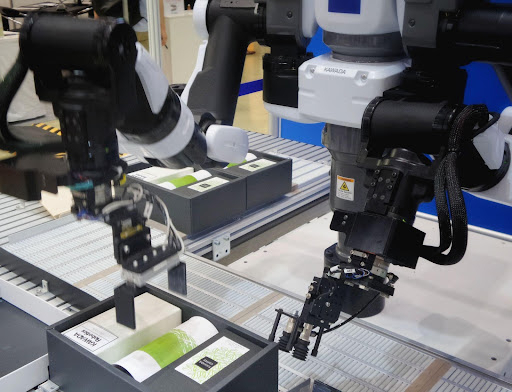
Global supply chain issues are becoming increasingly complex, and with the rise of e-commerce, the need for efficient and effective supply chain management is greater than ever. To ensure that global supply chain processes are optimized, the industry requires the expertise of leading professionals.
Vatsal Mehta has extensive knowledge and experience in advanced robotic systems. His technical know-how has enabled him to innovate and engineer new solutions impacting the supply chain sector. His efforts include developing and optimizing a new product introduction process for product rollouts.
Contributing to supply chain solutions
Technical Program Management leader Vatsal has worked at Amazon and Meta in high-profile roles. He was instrumental in the modernization of labor-intensive robotics processes. He led the development of advanced robotic systems that significantly impacted the company's performance, ergonomics, and finances. His work also led to automated tray-handling systems in Amazon warehouses, which improved order processing. This work also inspired the nationwide implementation of automated storage and retrieval systems.
Vatsal's creative use of technology, like conveyor belts, helped propose a solution that could make Amazon's fleet of robots more productive. This solution enabled the robots to transport multiple items in a single journey, making the system more adaptable and resilient. This design has the potential to revolutionize the way warehouses process orders.
Addressing global supply chain issues with robotics
Advanced robotics systems help to reduce costs, increase efficiency, and improve the overall quality of the product or service. By utilizing these systems, businesses can reduce the time and money it takes to transport goods from one part of the world to another.
Robotics helps decrease production costs by reducing the reliance on manual labor. It can also improve the accuracy of orders while reducing the risk of human error. By having accurate information on the supply chain, businesses can make better decisions on managing their business's logistics.
"With robotics, it is possible to modernize labor-intensive processes at scale, enhance ergonomics and safety, and deliver improved performance," Vatsal says. Robotics-enabled supply chains ultimately create financial benefits for businesses.
At Amazon warehouses, Vatsal designed a system that combines a novel transportation solution with the company's currently deployed sortation technology. His design puts the package at the right height and speed for the worker, which is suitable for ergonomics and performance.
Challenges of deploying robotic systems for supply chain improvement
Despite the obvious benefits of robotic systems, deploying these systems can be challenging for many businesses. Advanced robotics systems are complex and require significant investments in time and resources to develop and maintain. In addition, supply chains are dynamic and ever-changing, making it difficult to precisely predict how a robotic system will interact with the system.
Technical challenges include the complexity of the hardware and software involved in robotics systems and the need for significant computing power and storage capacity. Operational challenges include thoroughly understanding the supply chain to plan the robotic system's deployment properly.
Organizational challenges may also involve organizational structure and culture changes to accommodate the robotic system. These challenges may include changes to roles and responsibilities and the need to train and retrain personnel to operate and maintain the system.
Vatsal also has the expertise to work with leading engineers and experts, which helps to motivate the right solutions. He has defined and developed project management methodology, best practices, and standards as part of his work.
For instance, Vatsal established new requirements for the Program Management Office within the robotics organization. "These guidelines have been widely adopted throughout the company and are now used to manage multimillion-dollar initiatives," he shares.
The future of robotics in the supply chain industry
Future-thinking companies are adopting advanced robotics systems across global supply chains. As artificial intelligence, machine learning, and other emerging technologies become more widely adopted, their use in the supply chain industry will continue to revolutionize how businesses operate.
With robotics systems experts such as Vatsal, businesses can optimize their production, manufacturing, and delivery processes to ensure that their supply chains function smoothly and efficiently. Vatsal's area of expertise has become invaluable in alleviating the challenges in the global supply chain.









